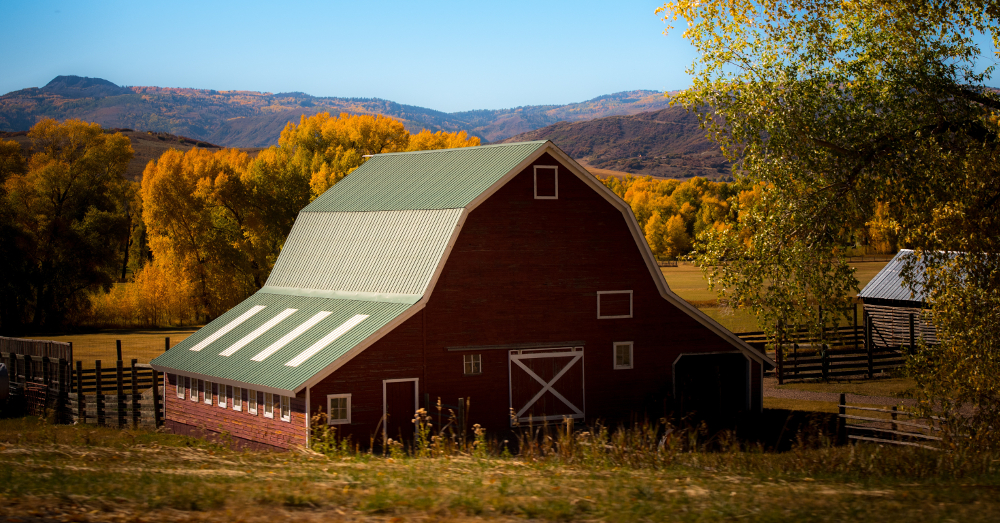
Organic Food — Hype or Hope?
The documentary, “Organic Food — Hype or Hope?” analyzes the benefits of organically grown foods. How are they different from conventional and do they really live up to the promise of being healthier? One significant problem is the fact that many organic farms are growing their food near farms using conventional methods.
July 30, 2018 | Source: Mercola.com | by Dr. Joseph Mercola
The 2018 documentary, “Organic Food — Hype or Hope?” analyzes the benefits of organically grown foods. How are they different from conventional and do they really live up to the promise of being healthier? One significant problem is the fact that many organic farms are growing their food near farms using conventional methods. They liken it to smoking — if a nonsmoker is sitting next to someone who lights up, the nonsmoker ends up inhaling toxins even though he or she has made the choice to live a healthier lifestyle.
Pesticide Drift Can Decimate an Organic Farm
The film starts out by looking at a problem common to many organic farmers, namely pesticide drift from neighbors growing their crops using conventional methods. The European Union (EU) has strict limits on pesticide residues in organic food, and some farmers cannot sell their products as organic due to chemical drift settling on their crops. Depending on wind conditions during spraying, the chemicals can travel long distances, contaminating organic fields where such pesticides are not legal to use.
What’s worse, some chemicals, such as pendimethalin, can remain airborne for weeks on end, thereby assuring widespread contamination. Stefan Palme, who grows organic fennel for baby food on his farm in Uckermark, Germany, recounts how he has been forced to harvest the fennel earlier in the season to avoid chemical contamination, which would bar him from selling the fennel as organic.
It involves more physical labor and greater care to harvest early, but the alternative is to sell his organic crop as conventional, for a lower price. Rudolf Vögel, a German agricultural engineer, is investigating how long pendimethalin can be detected in the environment.
He believes the phenomenon of drift has been widely underestimated, noting that evidence emerging in recent years “calls for an urgent reassessment of the way certain agents are permitted.” Pendimethalin keeps showing up in organic produce samples, and has become a particularly difficult problem, as organic farmers whose wares test positive for it cannot meet Germany’s strict organic rules.
What’s more, if the EU decides to impose even stricter limits on pesticide residues in organics, drift will prevent many organic farmers from qualifying for organic certification altogether. It’s a troubling Catch-22.
On the one hand, most organic farmers agree with lowering limits, as it is good for health. On the other hand, the contamination is not caused by them and cannot be stopped by them either, and lowering the limits would put many of them out of business. Palme is now pushing for a ban on pesticides such as pendimethalin to protect the organic sector as a whole.
Pesticides Found in Trees and Groundwater
Frieder Hofmann, an environmental engineer, is tracking the drift of pendimethalin by collecting bark samples from trees. He’s been able to confirm this herbicide can spread at least 10 kilometers (6.2 miles) from the site of the spraying. The drift problem raises an important question: Can organic food be produced anywhere in Germany? The same question is likely to be applicable to any number of other countries, where organic farms are trying to coexist amid conventional farms using copious amounts of toxic chemicals.
In one instance, Hofmann found no fewer than 11 pesticides in the bark of a large tree, two of which were found in “alarming concentrations.” One of them was pendimethalin. Pesticides are not only found in food and trees. When it rains, the chemicals seep through the ground and contaminate groundwater as well. Soil samples taken from a depth of 15 meters, just over 49 feet, reveal the presence of both nitrogen (from fertilizer runoff) and pesticides.
Making matters worse, many pesticides biodegrade very slowly, if at all, and remain in the environment for years. As noted in the film, “This is legalized environmental pollution on a grand scale.” It also threatens our ability to obtain clean water, as pesticides are extremely difficult and costly to filter out.
Who pays? Those who pay for tap water — not the farms that cause the contamination. That said, German water authorities place the blame not on farmers but rather on the chemical industry, noting that in this day and age, we would expect chemical producers to create agricultural chemicals that not only do their job in the fields, but also properly degrade so they won’t contaminate groundwater and contaminate the environment for years to come.
